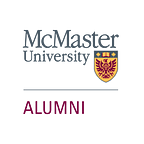Get Ready Now for the Future of Work
by Jillian Perkins-Marsh, alumni career counsellor
Every generation experiences its own set of disruptions to its way of life. The invention of the mechanical printing press revolutionized society through literacy. Ford’s assembly line in 1913 transformed mass production with automation.
Fast forward to just over a century. Literacy is not enough anymore, we also need to be digitally literate. Now we have Siri and Alexa in our private and work spaces helping us manage our daily lives.
With each big technological advancement in human history comes big changes in the way our economy and labour market respond. The 21st century’s change is coming…and many would argue is already here. RBC recently released a report called The Coming Skills Revolution. Humans Wanted: How Canadian Youth Can Thrive in the Age of Disruption, which I admit, at a glance, sounds a little apocalyptic. You may be thinking that every generation faced disruptions, so what is the big deal?
This report is one of the most interesting that I have ever read about the Future of Work. The approach and practicality of the data is impressive, analysis comprehensive and suggestions persuasive. They found that “more than 25% of Canadian jobs will be heavily disrupted by technology in the coming decade. Fully half will go through a significant overhaul of the skills required” with “all of new jobs created needing a new mix of skills.” So, how might that impact you and your future?
Good question. The skills-gap narrative has been going on for years in Canada and many of our educational institutions have responded with innovative programs created through collaborations between many stakeholders geared to help students gain skills and experience needed to succeed. A few local examples come to mind:
· Mac’s new joint humanities and business degree.
· Post-grad programs with internships have grown at an incredible rate.
· Applied learning and experience is now at the forefront of student services programming
We are definitely headed in the right direction, though there is a need for more work in all areas, including how employers recruit and hire.
Skills have always been the foundation of language used by career counsellors. We have long been preaching the concept of using transferable skills to transition from job to job.
Now we have a report that clearly shows that the correlation of skills between seemingly different occupations. For instance, they identified 35 foundational workplace skills. Using their measurement, it would only need upgrading of four skills for someone to transition from a dental assistant to graphic designer! Of course, not everyone’s aptitude would be sufficient to make such a move, but it stands that the underlying skills are the same. It underlies the importance to “discard the old model and start building resilient mobile careers- we can become the disruptors instead of the disrupted.”(p.25)
The Top 10 Projected Skills that will be in Demand are Human-Focused:
1. Active Listening
2. Speaking
3. Critical Thinking
4. Reading Comprehension
5. Monitoring
6. Social Perceptiveness
7. Coordination
8. Time Management
9. Judgement and Decision Making
10. Active Learning
(For a full list of the projected skills, please see the full report The Coming Skills Revolution. Humans Wanted: How Canadian Youth Can Thrive in the Age of Disruption, p.12).
The central message is that no matter what the job, RBC found that the social and soft skills are essential in every career area. This follows with same research findings from the Institute for the Future’s Future Work Skills 2020. Often I hear people feeling stressed about career future because of all the talk about preparing for jobs that don’t exist yet. We couldn’t predict in the early days of YouTube that someone could make millions creating content, nor can we predict what will come next in an exact way. All we can do is work with what we know and stay aware of trends in our digital economy.
Key Take Aways:
Be open to career mobility and lifelong learning: Employers value people who can be adaptable and keep learning. Stay on top of your training and skills development to create opportunities for career transition when/if disruption happens.
Focus on skills. As a job seeker, be able to identify and articulate your skills. As an employer, you can make a difference by hiring more for core skills vs. credentials.
Embrace working with technology and data. This is non- negotiable. Not everyone needs to be an expert, but digital fluency and understanding will become an essential skill.
To continually develop skills, you can start by accessing inexpensive (or often free) online resources like MOOCs (massive open online courses). You can take courses or go to conferences. You can find a mentor with expertise in the area. You can volunteer for an organization or a work team that offers the right experience.
Maybe you’ll develop the skills not just for the future, but for your future.
